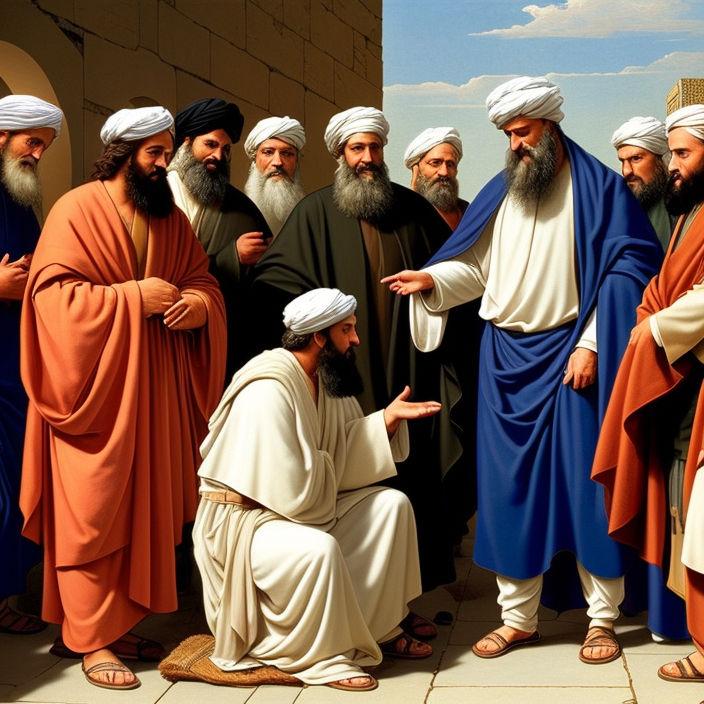Unraveling the Distinctions: Hebrews, Jews, Israelites, and Gentiles


Post: The terms “Hebrews,” “Jews,” “Israelites,” and “Gentiles” are commonly encountered in biblical contexts, each representing unique identities and roles within the overarching narrative. Let’s delve into these distinctions, shedding light on their meanings and exploring the potential for grafting Gentiles into the larger story.
Hebrews: The term “Hebrews” refers to an ancient Semitic people who lived during biblical times. Its etymology can be traced back to Eber, an ancestor of the Hebrews (Genesis 10:21, Genesis 11:14-17). “Hebrew” primarily applies to the early period of Israelite history, encompassing figures such as Abraham, Isaac, and Jacob. Notably, Abraham is referred to as a “Hebrew” in the book of Genesis (Genesis 14:13). The term “Hebrew” represents the era preceding the formal establishment of the nation of Israel.
Israelites: The term “Israelites” designates the descendants of the twelve sons of Jacob, who received the name Israel from God Himself (Genesis 32:28). This name change symbolizes Jacob’s transformation and the commencement of a nation. The Israelites trace their lineage back to Jacob’s sons, who became the heads of the twelve tribes of Israel. This collective identity played a pivotal role in shaping their religious, cultural, and political history. The book of Exodus narrates the Israelites’ liberation from slavery in Egypt under the leadership of Moses, as well as their subsequent journey towards the Promised Land.
Israel: In addition to its usage in relation to the entire nation of Israel, the term “Israel” is sometimes employed to specifically identify the northern tribes. Following the united kingdom of Israel’s division, the northern tribes formed the kingdom of Israel, while the southern tribes of Judah and Benjamin constituted the kingdom of Judah. In certain biblical contexts, “Israel” distinguishes the northern tribes from the southern tribes associated with the term “Jews.”
Jews: The term “Jews” commonly refers to individuals who identify with Judaism, the monotheistic religion founded by the ancient Israelites. Historically, “Jews” primarily denoted the southern tribes, particularly the kingdom of Judah. Over time, the term “Jews” gained prominence to describe those belonging to the kingdom of Judah, which included the tribe of Judah, from which the term “Jew” originates (2 Kings 16:6, 2 Kings 25:25).
Gentiles: The category of “Gentiles” refers to individuals who are not of Jewish or Israelite descent. It encompasses diverse ethnic and cultural backgrounds outside the scope of the Hebrew and Israelite lineage. In biblical contexts, the term is often used to distinguish non-Jewish nations and peoples. However, it is essential to note that the biblical narrative also highlights the inclusive nature of God’s plan, offering the opportunity for Gentiles to be grafted into the larger story of salvation.
Scriptural references illuminate this concept of Gentiles being included in God’s redemptive plan. In the New Testament, the Apostle Paul writes about the grafting of Gentiles into the spiritual heritage of Israel. He uses the metaphor of an olive tree, with the natural branches representing the Israelites and the wild branches representing the Gentiles. Through faith in Jesus Christ, Gentiles can be grafted into the tree, sharing in the promises and blessings of God’s covenant with Israel (Romans 11:17-24).
This grafting process symbolizes the spiritual unity and equality of believers, irrespective of their ethnic background. It emphasizes that through faith, Gentiles can become partakers in the blessings and inheritance of God’s covenant with Israel. The apostle Paul further underscores this inclusivity, proclaiming that “There is neither Jew nor Greek, slave nor free, male nor female, for you are all one in Christ Jesus” (Galatians 3:28).
By exploring these distinctions and the potential for grafting in Gentiles, we gain a deeper understanding of the diverse identities and the inclusive nature of God’s redemptive plan. It underscores the richness of the biblical narrative and the universal invitation to partake in the blessings of faith.

